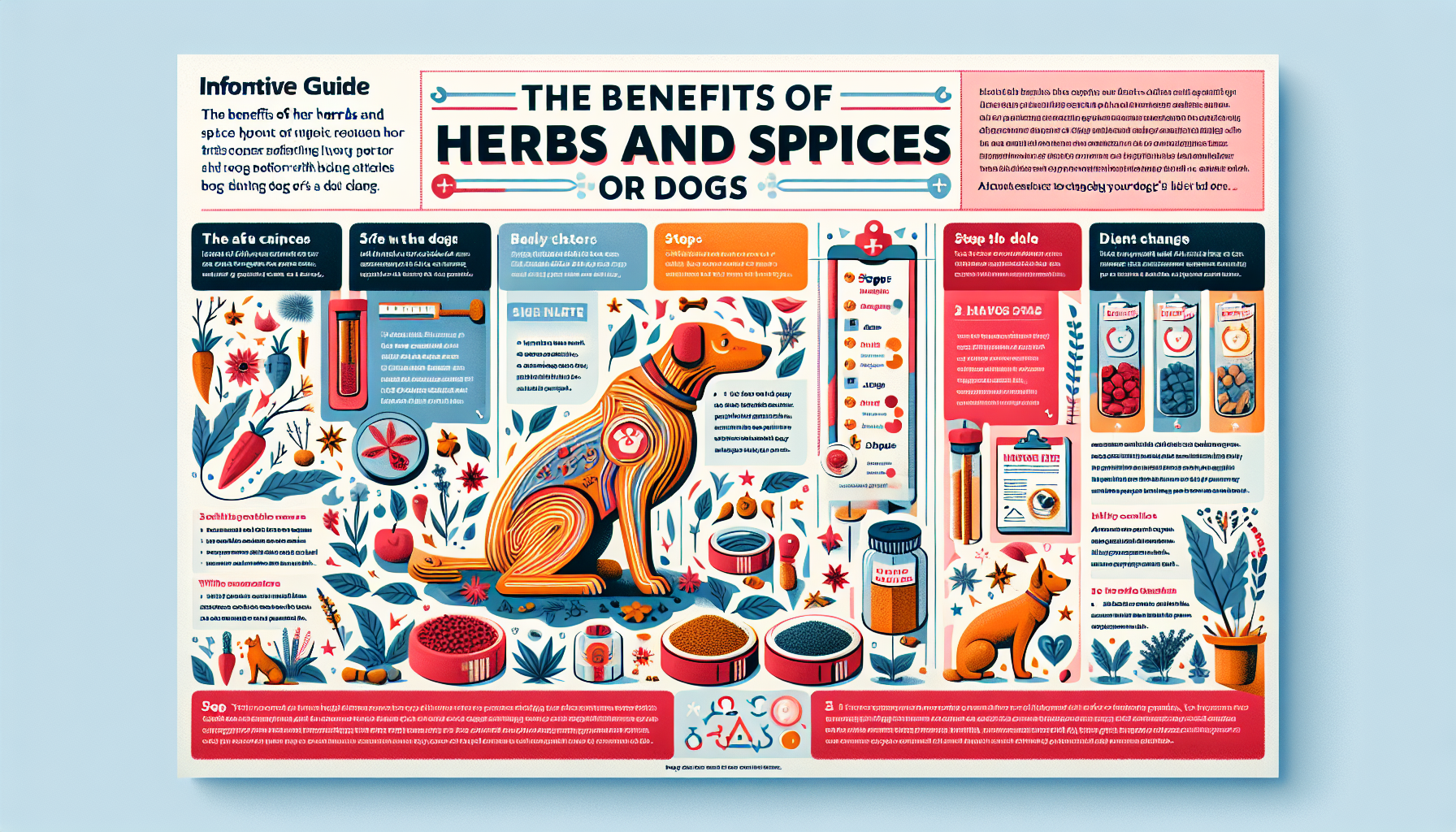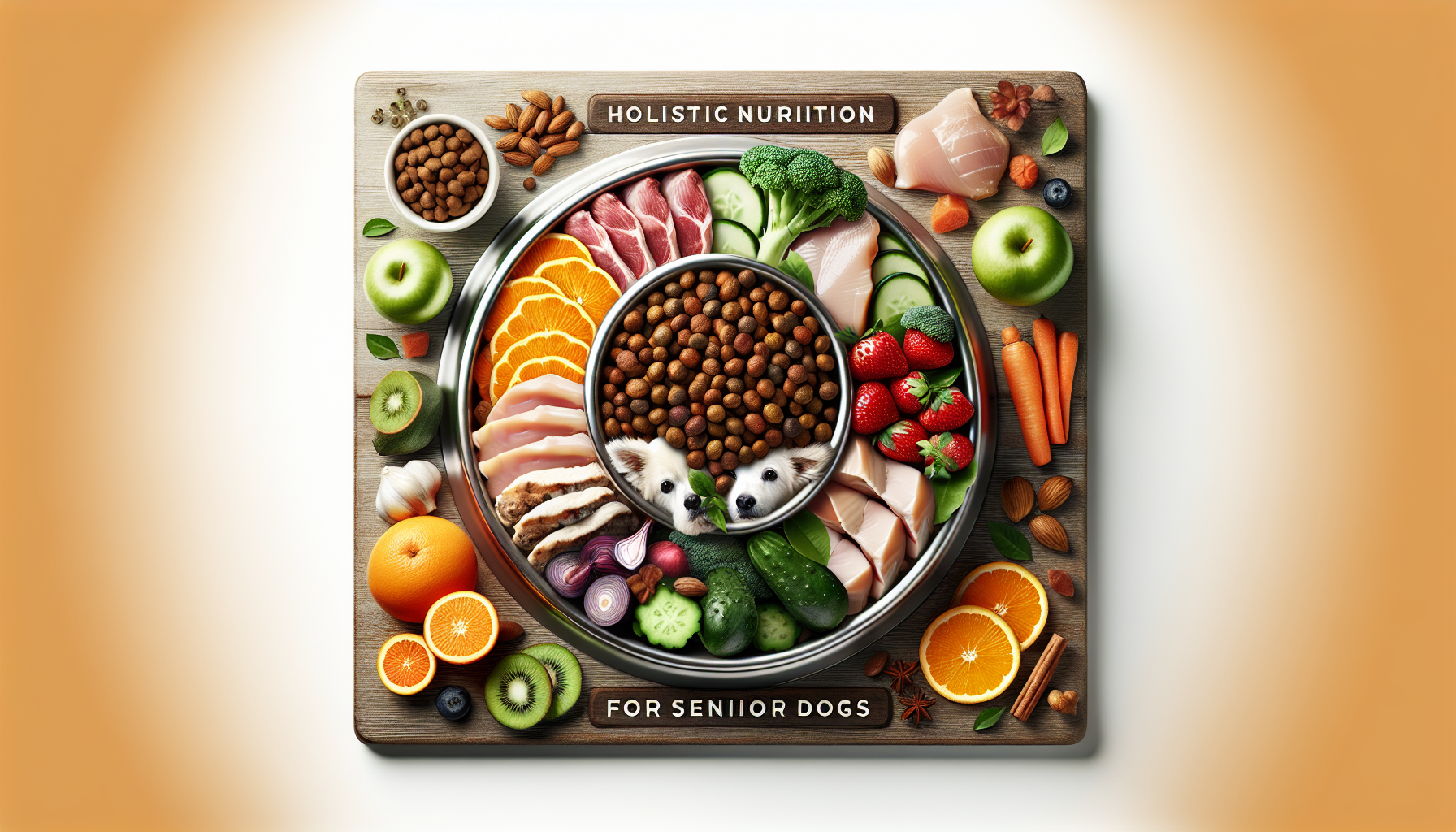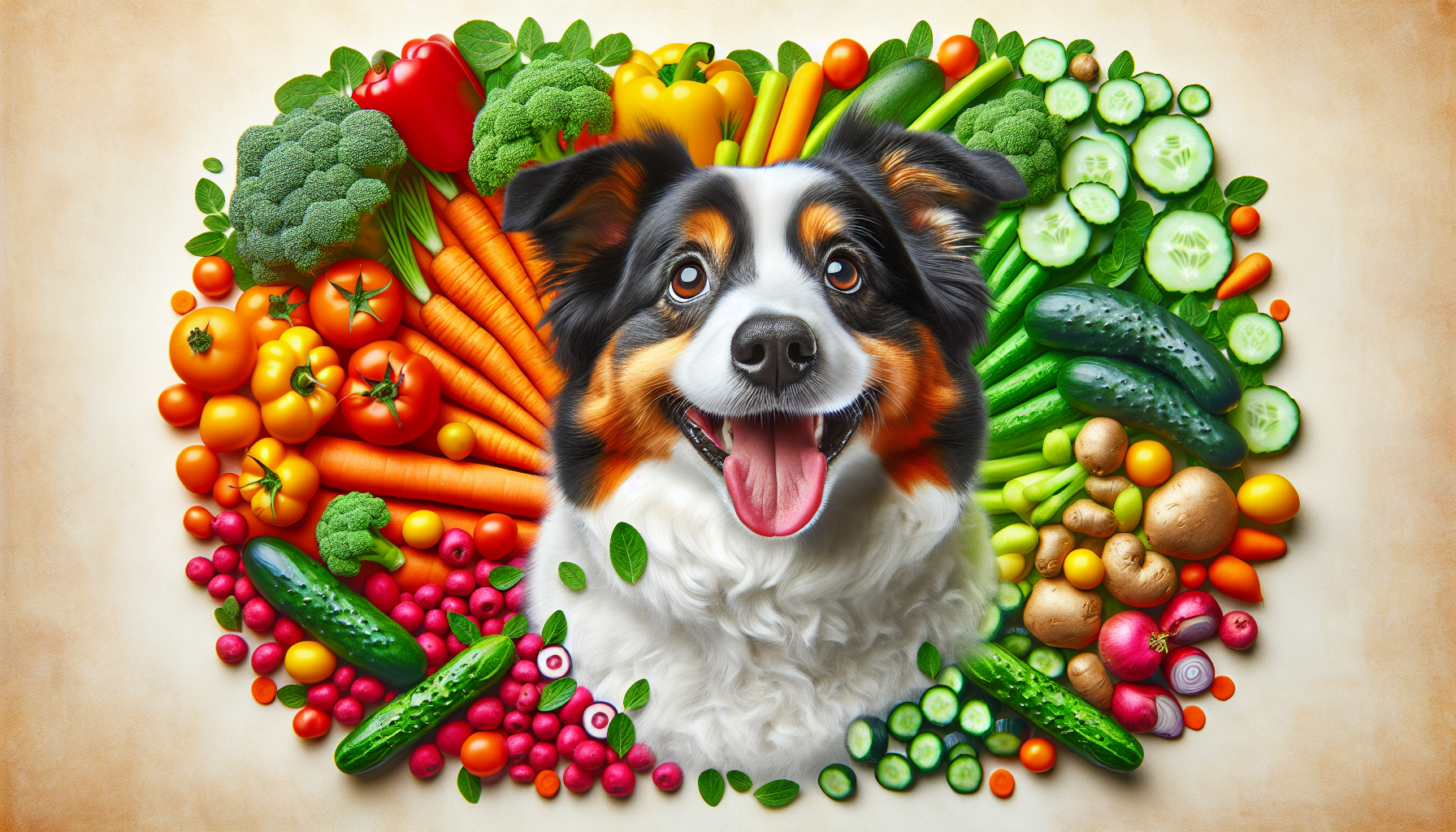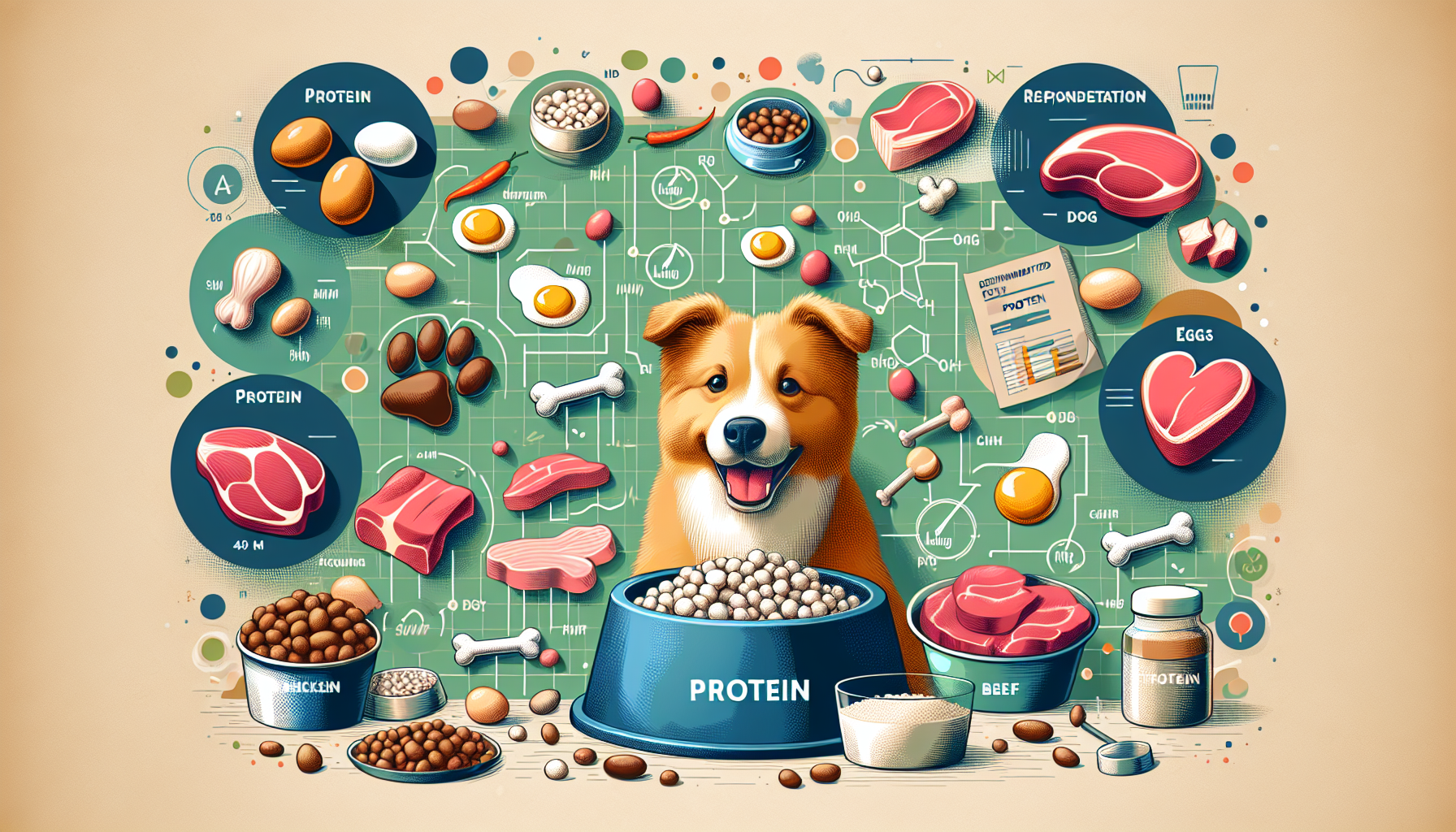Are you a proud dog owner who wants to make sure your furry friend is getting the best nutrition possible? If so, then you’ll definitely want to know what dairy products are safe for dogs to consume. In this article, we’ll explore the world of dairy and dogs, discussing what’s safe and what’s not. From yogurt to cheese, we’ll break down the benefits and potential risks, ensuring that you have all the information you need to make informed decisions about your dog’s diet. So, let’s dive in and learn more about dairy and dogs: what’s safe?
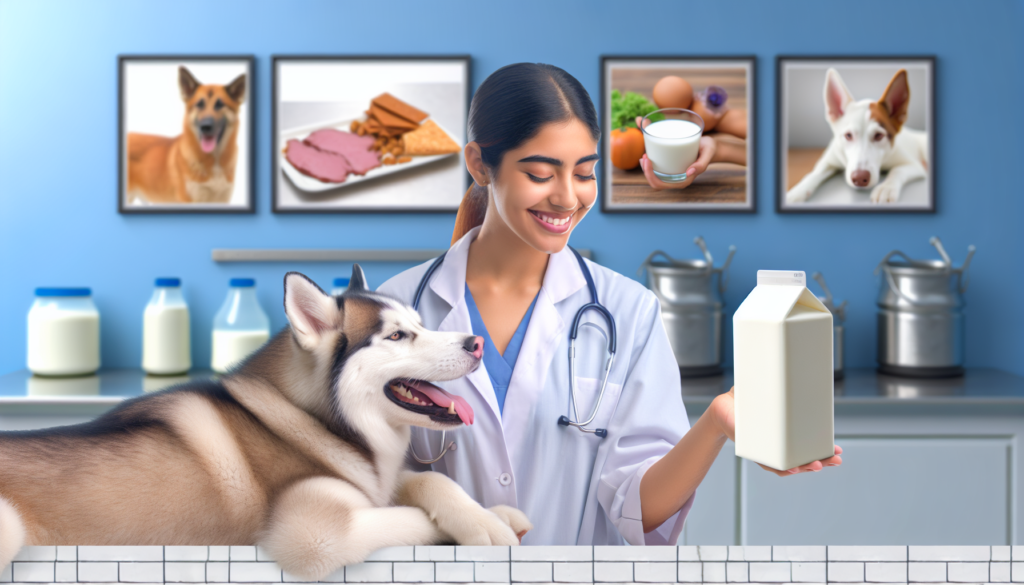
Introduction
Overview of the article
In this article, we will explore the relationship between dairy and dogs. Many pet owners wonder whether dogs can consume dairy products and if they offer any health benefits. We will delve into the impact of lactose intolerance in dogs and discuss the different types of dairy products available. Additionally, we will provide a list of dairy products suitable for dogs, highlighting their potential health benefits and the precautions and risks associated with their consumption. Finally, we will offer tips on preparing dairy for dogs, share some recipes incorporating dairy, and explore alternative options to dairy. It’s important to consult with a veterinarian to ensure we meet our individual dog’s needs in terms of diet and nutrition.
Understanding Dairy and Dogs
Can dogs consume dairy products?
Many dogs can consume dairy products in moderation, but some may be lactose intolerant. Lactose is a sugar found in milk and other dairy products. Dogs, like humans, require the enzyme lactase to digest lactose properly. However, some dogs may not produce enough lactase, leading to lactose intolerance. It’s essential to monitor your dog’s response to dairy consumption and consult with a veterinarian if you suspect an intolerance.
Impact of lactose intolerance
When dogs with lactose intolerance consume dairy, they may experience symptoms such as diarrhea, vomiting, gas, or bloating. These symptoms occur due to undigested lactose fermenting in the gut and can cause discomfort for your furry friend. It’s crucial to be aware of these potential issues and choose dairy products that are safe for dogs with lactose intolerance or consider alternative options.
Types of dairy products
Dairy products encompass a wide range of options, and it’s essential to understand which ones are suitable for dogs. Common dairy products include milk, yogurt, cheese, and buttermilk. While some dogs can tolerate certain dairy products better than others, it’s crucial to choose carefully and monitor your dog’s reaction to them.
Dairy Products Suitable for Dogs
Yogurt
Yogurt can be a safe and healthy dairy option for dogs. It contains beneficial bacteria called probiotics, which support digestive health. Look for plain, unsweetened yogurt with live active cultures. Avoid flavored yogurts that often contain added sugars, artificial sweeteners, and other additives that can be harmful to dogs. When introducing yogurt to your dog’s diet, start with small amounts and watch for any adverse reactions.
Cheese
Cheese can be a tasty treat for dogs, but it should be fed in moderation. Choose low-fat and low-sodium options, and avoid cheeses that are high in lactose, such as cottage cheese. Some dogs may be lactose intolerant but can tolerate small amounts of cheese due to its lower lactose content. Always monitor your dog for any signs of lactose intolerance or digestive issues when introducing cheese into their diet.
Buttermilk
Buttermilk is a dairy product that can be suitable for some dogs. It is lower in lactose compared to regular milk, making it potentially easier for dogs with lactose intolerance to digest. However, as with any dairy product, it’s essential to introduce it gradually and observe your dog’s response. Opt for plain, unsweetened buttermilk without any added flavorings or additives.
Health Benefits of Dairy for Dogs
Calcium and bone health
Dairy products are known for their calcium content, which plays a vital role in maintaining healthy bones and teeth in dogs. Adequate calcium intake is particularly crucial for growing puppies and senior dogs prone to age-related bone loss. Including small amounts of dairy in your dog’s diet can help meet their calcium needs, but it’s essential to consider other factors such as age, breed, and overall health.
Probiotics and digestive health
As mentioned earlier, yogurt contains probiotics that can support digestive health in dogs. These beneficial bacteria help maintain a healthy balance of gut flora and can aid in digestion and nutrient absorption. Adding a small amount of plain yogurt to your dog’s diet can provide these probiotic benefits, but it’s important to avoid sweetened or flavored varieties that can contain harmful ingredients.
Improving coat condition
Dairy products can contribute to improving your dog’s coat condition. The fats and proteins present in dairy can help keep the skin moisturized and promote a lustrous coat. However, it’s crucial not to rely solely on dairy for coat health and incorporate a well-balanced diet with other essential nutrients. If your dog has specific coat concerns, consult with a veterinarian for appropriate dietary recommendations.
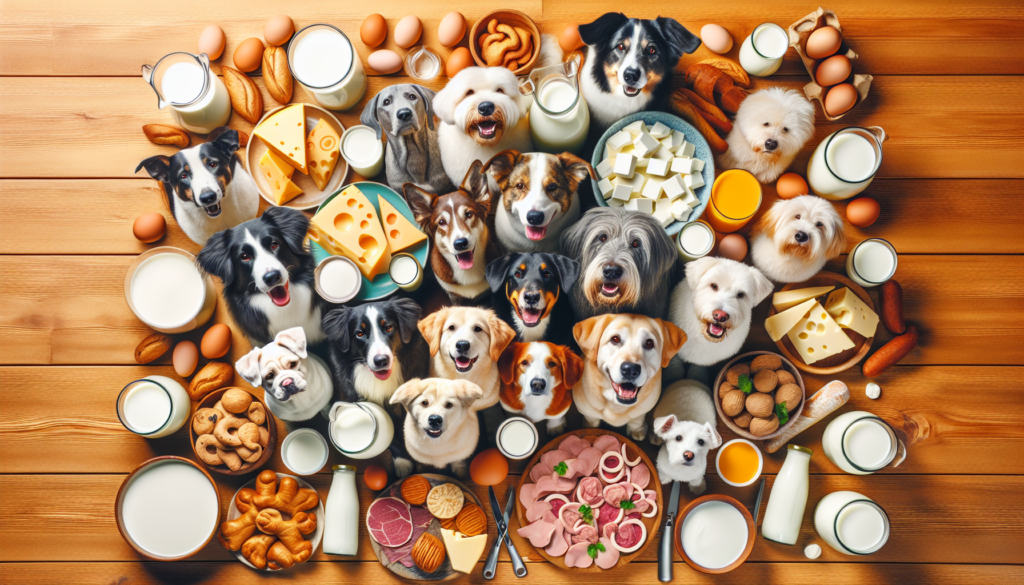
Precautions and Risks
Lactose intolerance
Lactose intolerance is a common issue in dogs, and it’s essential to be aware of the signs and symptoms. If you suspect your dog may be lactose intolerant, monitor their response to dairy consumption and consult with a veterinarian. Symptoms of lactose intolerance in dogs can include diarrhea, vomiting, gas, or bloating. It’s crucial to choose dairy products that are low in lactose or consider alternatives to avoid discomfort for your furry friend.
Risk of obesity
Dairy products should be fed in moderation, as they can be calorie-dense and lead to weight gain if given in excessive amounts. Obesity in dogs can contribute to various health issues, such as joint problems, diabetes, and heart disease. When incorporating dairy into your dog’s diet, ensure it is part of a balanced meal plan and monitor your dog’s weight and overall body condition.
Potential allergies
Some dogs may be allergic to dairy products, experiencing adverse reactions such as itching, skin rashes, gastrointestinal upset, or respiratory issues. If you notice any unusual symptoms after introducing dairy to your dog’s diet, discontinue use and consult with a veterinarian. Dairy allergies are relatively uncommon, but it’s crucial to be vigilant and consider alternative options if necessary.
Preparing Dairy for Dogs
Choosing low-fat options
When selecting dairy products for your dog, opt for low-fat or reduced-fat options. High-fat dairy products can lead to weight gain and other health issues in dogs. Always read the labels carefully and choose products that contain minimal additives, sugars, and artificial ingredients. Natural, plain options are the safest and healthiest choice for your canine companion.
Avoiding additives and flavorings
Dairy products intended for human consumption often contain additives, flavorings, and sweeteners that can be harmful to dogs. It’s crucial to avoid giving your dog dairy products that contain these additional ingredients. Stick to plain, unsweetened options and focus on the natural benefits of dairy without the risk of exposing your dog to potentially harmful substances.
Serving sizes
Portion control is vital when including dairy in your dog’s diet. Too much dairy can lead to digestive issues, weight gain, or other health problems. The appropriate serving size will depend on various factors, including your dog’s size, age, and overall calorie intake. Avoid overfeeding dairy products and consult with a veterinarian to determine the appropriate portion for your furry friend.
Recipes Incorporating Dairy for Dogs
Frozen yogurt treats
Frozen yogurt treats can be a delightful and healthy option for dogs, especially during warmer months. Simply blend plain, unsweetened yogurt with your dog’s favorite fruits, such as bananas or berries. Pour the mixture into ice cube trays or silicone molds and freeze until firm. These frozen treats can provide a refreshing and calcium-rich snack for your four-legged companion.
Homemade cheese biscuits
Homemade cheese biscuits can be a delicious way to incorporate dairy into your dog’s diet. Combine whole wheat flour, grated cheese, and a small amount of water or low-sodium chicken broth to form a dough. Roll out the dough and cut it into small biscuit shapes. Bake until golden brown and let them cool before offering them to your pup. These treats can be given in moderation as a special reward.
Pumpkin and yogurt smoothie
A pumpkin and yogurt smoothie can be a nutritious treat for your dog. Blend plain, unsweetened yogurt with canned pumpkin (not pumpkin pie filling) and a small amount of water or low-sodium chicken broth. This smoothie can provide a tasty source of fiber and vitamin A for your pup. Serve it in a bowl or freeze it into ice cube trays for a refreshing snack.
Alternatives to Dairy for Dogs
Non-dairy milk options
If your dog is lactose intolerant or you prefer to avoid dairy altogether, there are non-dairy milk options available. Unsweetened almond milk or coconut milk can be suitable alternatives. However, it’s essential to choose varieties that do not contain any additives or sweeteners. Always introduce new foods gradually and monitor your dog’s response for any adverse reactions.
Plant-based yogurts
Plant-based yogurts, such as those made from coconut or almond milk, are dairy-free alternatives that may be suitable for dogs. Ensure they are plain and unsweetened, without any artificial flavorings or additives. These yogurts may not provide the same probiotic benefits as dairy-based yogurt, but they can still offer a nutritious and digestion-friendly option for lactose-intolerant dogs.
Other calcium-rich foods
If dairy is not an option for your dog or you prefer alternative sources of calcium, there are other foods you can incorporate into their diet. Leafy green vegetables like kale, broccoli, and spinach are excellent sources of calcium. Additionally, certain fish, such as canned salmon with bones, contain calcium and provide essential omega-3 fatty acids. Always consult with a veterinarian to ensure your dog’s nutritional needs are being met.
Consulting with a Veterinarian
Importance of professional advice
It is crucial to consult with a veterinarian when making dietary decisions for your dog, including incorporating dairy. A veterinarian can provide tailored advice based on your dog’s specific needs, considering factors such as age, breed, size, and overall health. They can help determine whether dairy is suitable for your dog and recommend appropriate portion sizes and alternatives if necessary.
Determining individual dog’s needs
Every dog is unique, so it’s important to consider their individual needs when it comes to diet and nutrition. Some dogs may thrive on a diet that includes dairy, while others may be better off without it. Work with your veterinarian to determine if dairy is a good fit for your dog, taking into account any allergies, intolerances, or underlying health conditions. A customized approach will ensure your dog’s well-being and help them thrive.
Conclusion
In conclusion, dairy can be safely incorporated into a dog’s diet if certain precautions are taken. While dogs can consume dairy products, it’s essential to monitor their response and determine if they have lactose intolerance. Yogurt, cheese, and buttermilk can be suitable dairy options for dogs, offering potential health benefits such as improved bone health, digestive support, and coat condition. However, it’s crucial to be mindful of the risks associated with lactose intolerance, potential obesity, and allergies. When preparing dairy for dogs, choose low-fat options, avoid additives and flavorings, and control serving sizes. Consider incorporating dairy into homemade treats or opt for non-dairy alternatives if necessary. Ultimately, consulting with a veterinarian is key to ensuring your dog’s specific needs are met and their overall health is supported.


